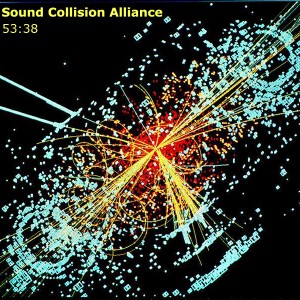from recent music heroes:
Sarah J Ritch`s 5-track issue is a crossover album which is managed in a way to lead it up to the consolidation of modern and traditional, doleful cello music and experimental, at times even aggressive electronic or electro-acoustic processings which wake you up from a lethargic state of mind. These minimally treated vibrating impulses are spectacular, filled in with divergent power and intensiveness, however, ultimately ready to ascend or descend into remote, abstract universes.
nice!
and an older one from avant music news:
With Garbage Strike, sound artist John Collins McCormick – working under the name Sky Thing – creates a sonic portrait of post-industrial wastelands. McCormick uses a varied collection of sounds produced by electronics, objects, turntables, industrial detritus, field recordings, and conventional instruments. The five resulting tracks are studies in themes and variations for drones. Blast Place, for example, combines the sounds of friction with what appears to be rocks tumbling in a cylinder; Sheerest (CWTKK) follows with hissing, rattling high frequencies punctuated by the creak of a door on its hinges and the footsteps of a person entering (or leaving) the room. Things a Cat Can Do to a Fence, by contrast, is the sound of motors running down—an actual or quasi field recording of dying factories. All in all, a thoughtful take on a given moment in time.
kind!



